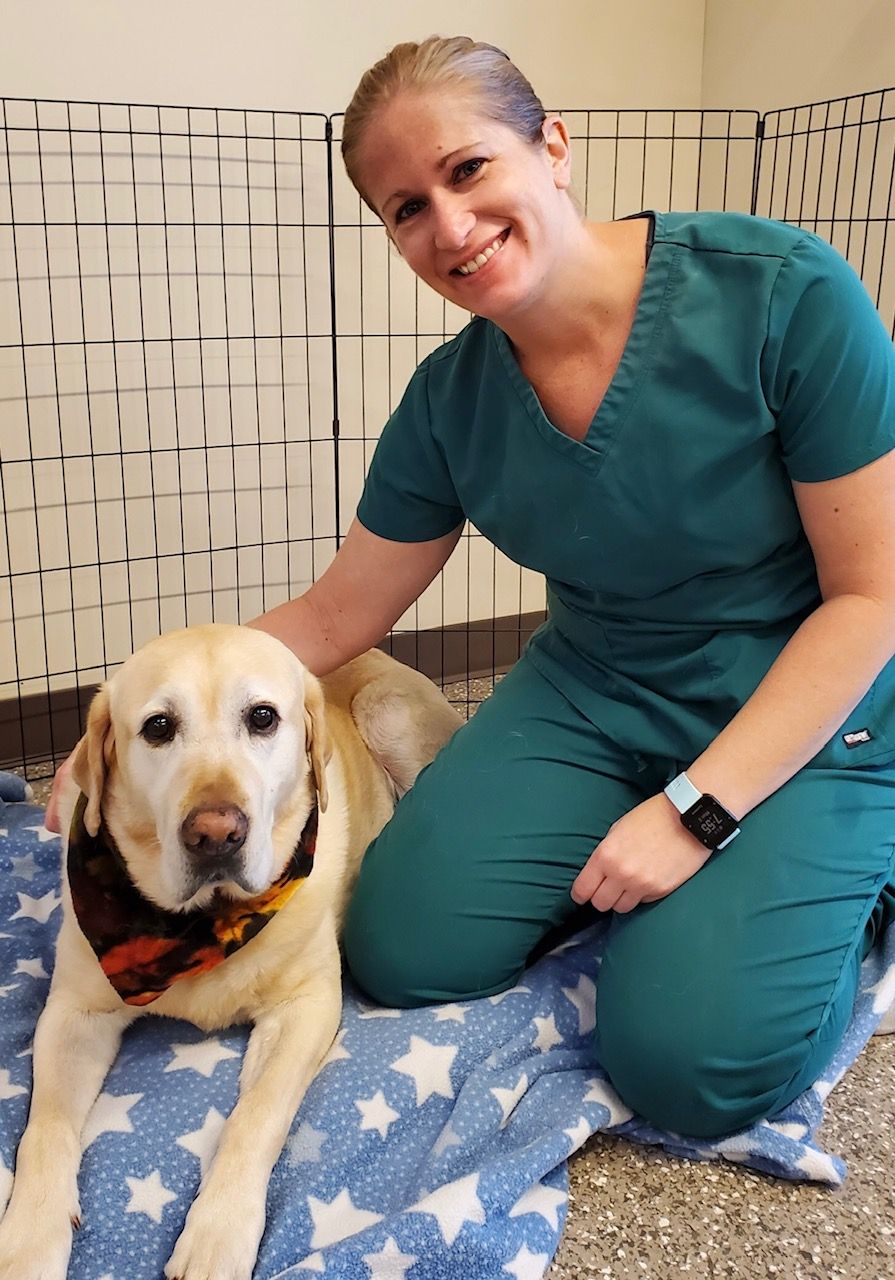Nicole Shuey, CVT, VTS (Anesthesia/Analgesia)

The OAVT recently connected with CVT Nicole Shuey who will be presenting “Anxiety, Dysphoria or Pain? How to Recognize and Treat a Rough Recovery” at the upcoming conference. We asked Nicole a series of questions, inviting her to share more about her current role and past experiences.
Nicole has been a Certified Veterinary Technician for 14 years, including 5 years at the University of Tennessee in the Anesthesia Department. In 2018, she moved to Portland, OR and finished the process of obtaining her VTS in anesthesia and analgesia. She has recently transitioned into a new role as a Referral Relationship Manager at Pacific Northwest Pet ER and Specialty Center. In her spare time, Nicole enjoys running, hiking and other outdoor activities; she recently climbed to the summit of Mt. St. Helens!
What do you think is the best part of your job?
My current role is much different than other jobs I have had as a certified technician, but the best part continues to be the teaching aspect. In every career that I have had, I have always enjoyed teaching advanced skills and techniques to others in the industry. As a person who thrives in learning environments, I think it is so important to incorporate continuing education into the veterinary field. My new role involves training and development both internally and to the referring veterinary community, and it is so rewarding being able to reignite interest in veterinary industry members who may be feeling a little stagnant.
Can you brief a unique case that you handled?
While working on my VTS, I had so many interesting critical anesthesia cases. The ones that stay with me the most are not always the ones that survived. I think the most interesting case that I ever did was a heartworm extraction on a dog with Caval Syndrome. Those patients are so critical, that there are very few injectables that can be used safely. We titrated most of the anesthetic agents by hand, while watching the snares try to grab the heartworms via fluoroscopy (at around midnight!). If the heartworms break, it causes acute onset anaphylaxis and cardiac arrest, which is what happened in this patients case. Even though it didn’t have the greatest outcome, it involved really intensive and careful case management. Those are the cases where I always learn the most.
What makes you special in the animal healthcare industry?
I think what makes me special in the veterinary industry is the variety of different careers I have had so far, and how each one has given me a different perspective on the veterinary industry as a whole. I started in private practice, so I know the limitations that can be seen in general practice, but also the outstanding medicine that can be done with progressive thinking practice owners. I have spent several years in academia, where I learned so much in depth knowledge about questions I never thought to ask. I also saw the most insane cases that did not show up in general practice (tracheal stents, pacemakers, polytraumas ect). I have worked in a limited multi-specialty, and now in a multi-specialty/ER but in a more administrative role. Each job has given me a fresh perspective on the good and bad in veterinary medicine, and it will hopefully allow me to find ways to help others feel passionate about practicing the highest standard of medicine that they can, no matter where they work.